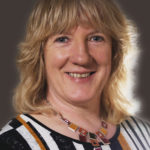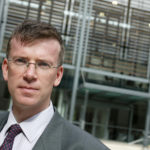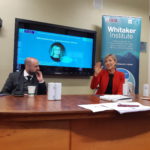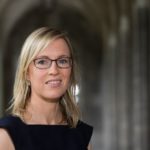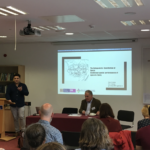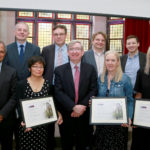News
Irish Times – ‘Show us your boobs and you’ll get a tip’: An Irish waitress’s life
Whitaker Institute member Dr Deirdre Curran, of the Work, Organizations and Society research cluster, spoke with the Irish Times about her research on the treatment of employees in the Irish hospitality industry. The article discuss the findings of the research in addition to recounting stories of mistreatment of hospitality workers, collected in Dr Curran’s research…. | Read on »
Professor Alan Ahearne Presents on Brexit’s Impact on Romania in Bucharest
The Irish Embassy in Bucharest invited Professor Alan Ahearne, Director of the Whitaker Institute, to give presentations on Brexit’s impact on Romania. Professor Ahearne’s presentations were to students and faculty members at the Bucharest University of Economic Studies; members of the Romanian Irish Business Association (at which he was joined by the former Deputy Governor of… | Read on »
Cairnes School/Whitaker Institute Inaugural Professorial Lecture Series – Professor Kate Kenny
The Cairnes School/Whitaker Institute Inaugural Professorial Lecture Series continued on Wednesday 23 October with Kate Kenny, Professor of Business and Society. Professor Kenny explored the question ‘What role does ethics play in business practice, in Ireland and internationally?’ in the form of a conversation with John Devitt, Chief Executive and Founder of Transparency Ireland. She… | Read on »
Millions may be taking statins unnecessarily
Whitaker Institute member Dr John Cullinan, of the population and migration research cluster, and Dr Paula Byrne had the results of a five-year study published in The British Medical Journal (BMJ) which focused on the use of statins amongst people at low risk of cardiovascular disease and the need for better data to help shared decision making. Hear… | Read on »
RTÉ Brainstorm – What I learned about Irish banking culture from whistleblowers
Professor Kate Kenny, Work, Organizations and Society cluster leader, has a new article in RTÉ Brainstorm. The piece explores whistleblowing in the financial sector. What I learned about Irish banking culture from whistleblowers “Ireland’s Central Bank… | Read on »
RTÉ Brainstorm – How Ireland’s asylum system commits violence against women
Whitaker Institute member Carol Ballantine, of the Gender and Public Policy Cluster, has a new piece in RTÉ Brainstorm. The article explores how Ireland’s asylum system enables violence against women. How Ireland’s asylum system commits violence against women “Leaving… | Read on »
Violence, Space and the Archives Conference
The Conflict, Humanitarianism and Security Research Cluster co-organised a conference on Violence, Space and the Archives in NUI Galway on 23-24 May 2019 with almost thirty speakers from across Europe and North America. The event brought together archivists, political scientists, sociologists, historians, geographers, human rights scholars and others to explore key themes at the intersection between… | Read on »
Dr Su-Ming Khoo and Dr Lorraine Morgan win President’s Award for Research Excellence
Congratulations to Whitaker Institute members Dr Su-Ming Khoo, cluster leader of Environment, Development and Sustainability, and Dr Lorraine Morgan, cluster leader of Agile and Open Innovation, who both won at the 2019 Research & Innovation Symposium and President’s Award for Research Excellence. Dr Su-Ming Khoo was one of the recipients of the Research Supervisor… | Read on »
RTÉ Radio 1’s ‘Drivetime’ – Prof Kate Kenny on Whistleblowers
Professor Kate Kenny, cluster leader of the Work, Organizations and Society research cluster, spoke to RTÉ Radio 1’s ‘Drivetime’ host Mary Wilson about the reasons why people blow the whistle and the impact of the 2014 Protected Disclosures Act.
Prof Alan Ahearne Delivers Presentation to Galway City Council on the Economic Implications of Brexit
Professor Alan Ahearne, Director of the Whitaker Institute, delivered a presentation to Galway City Council on the economic implications of Brexit. In the presentation, Prof Ahearne said 25% of good imports nationally come from the UK and the largest impact of Brexit is likely to be felt in food and agriculture, financial services and tourism,… | Read on »


